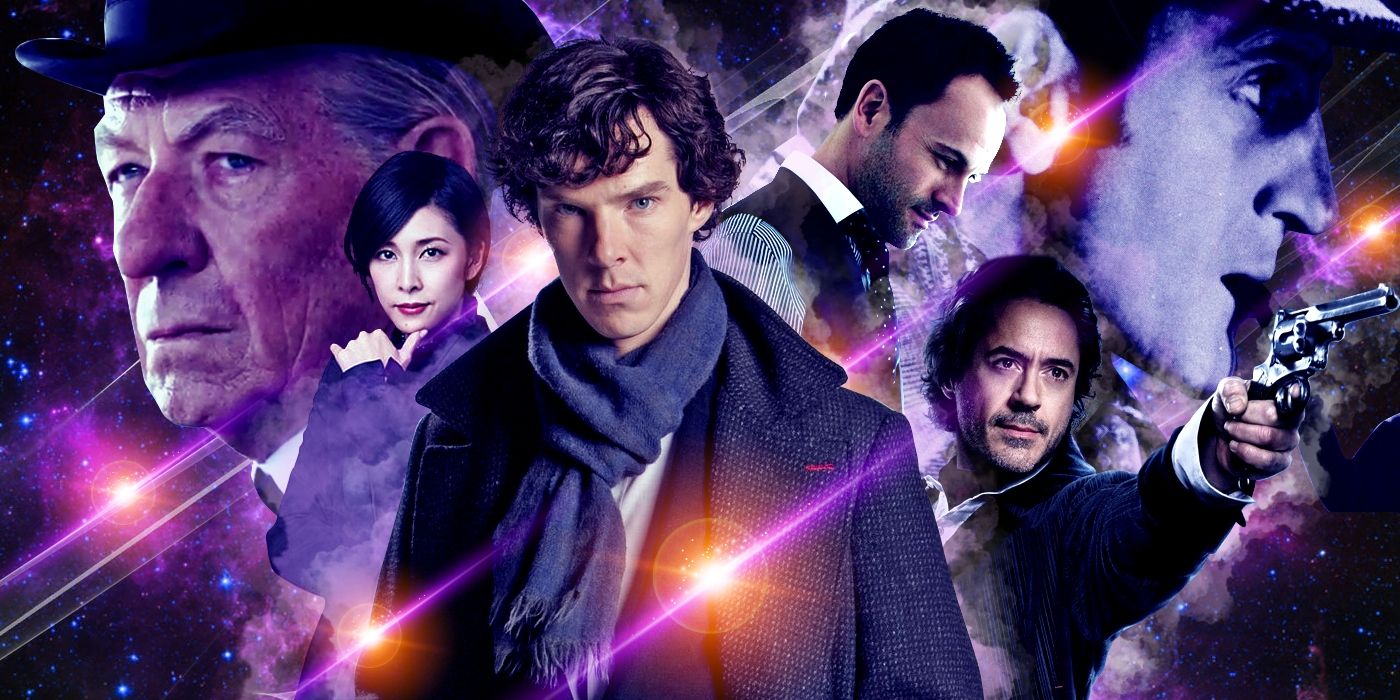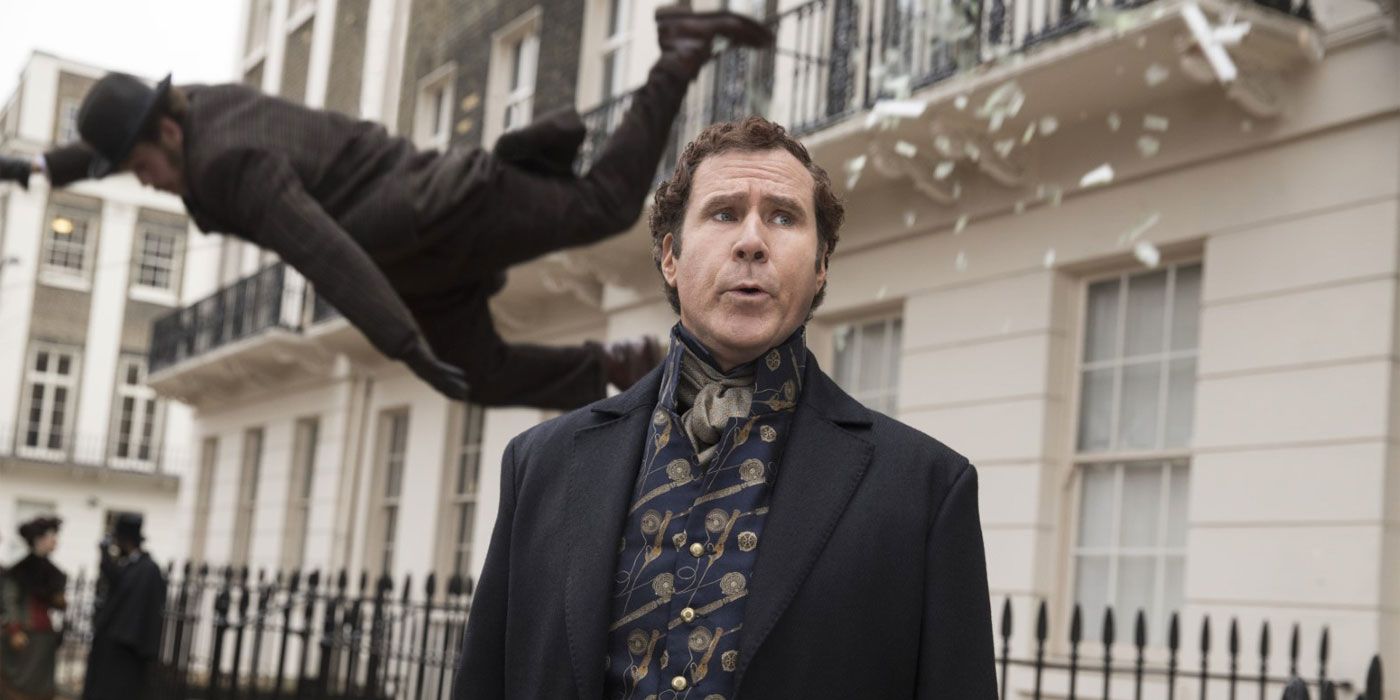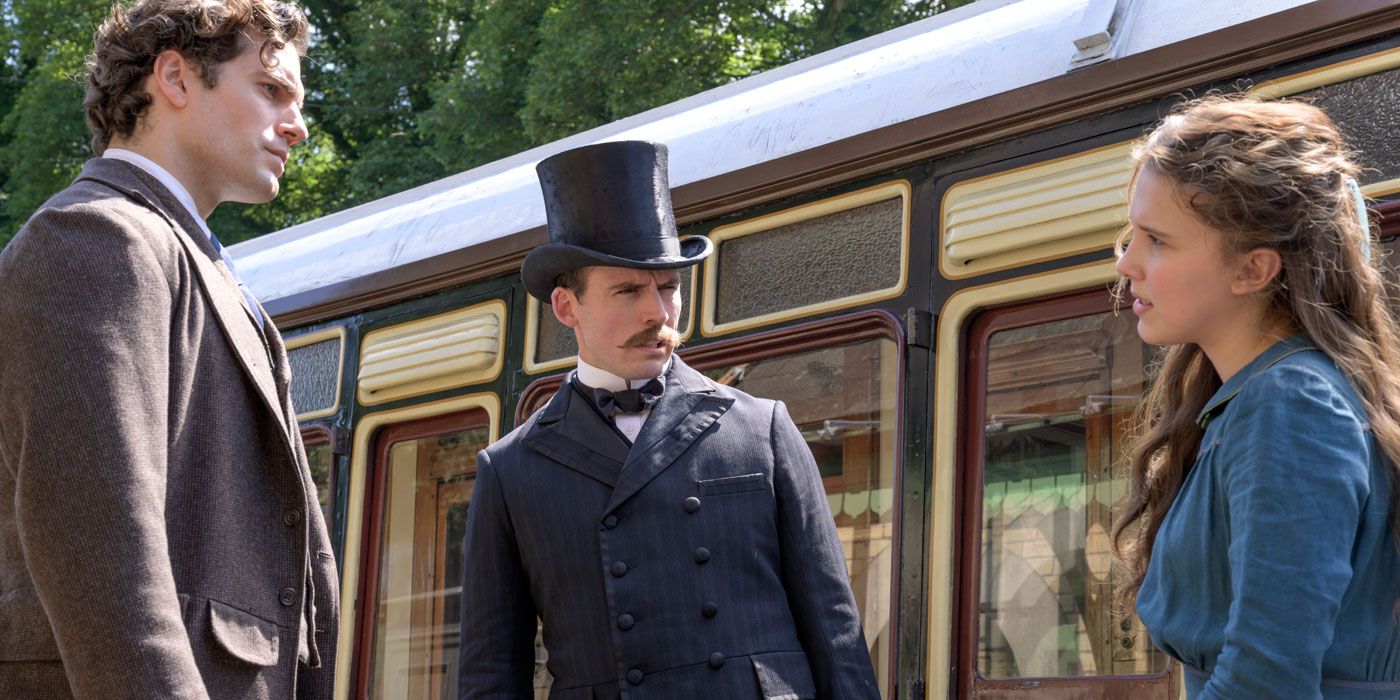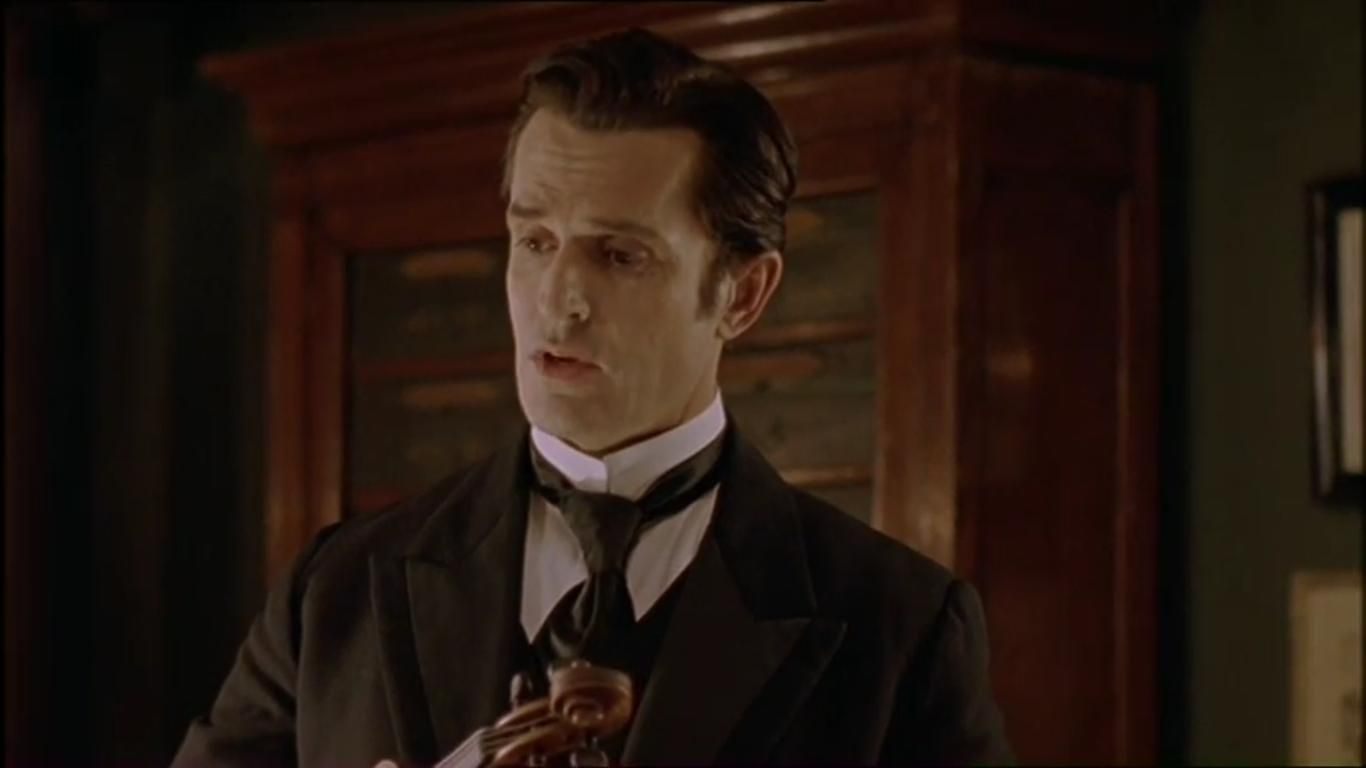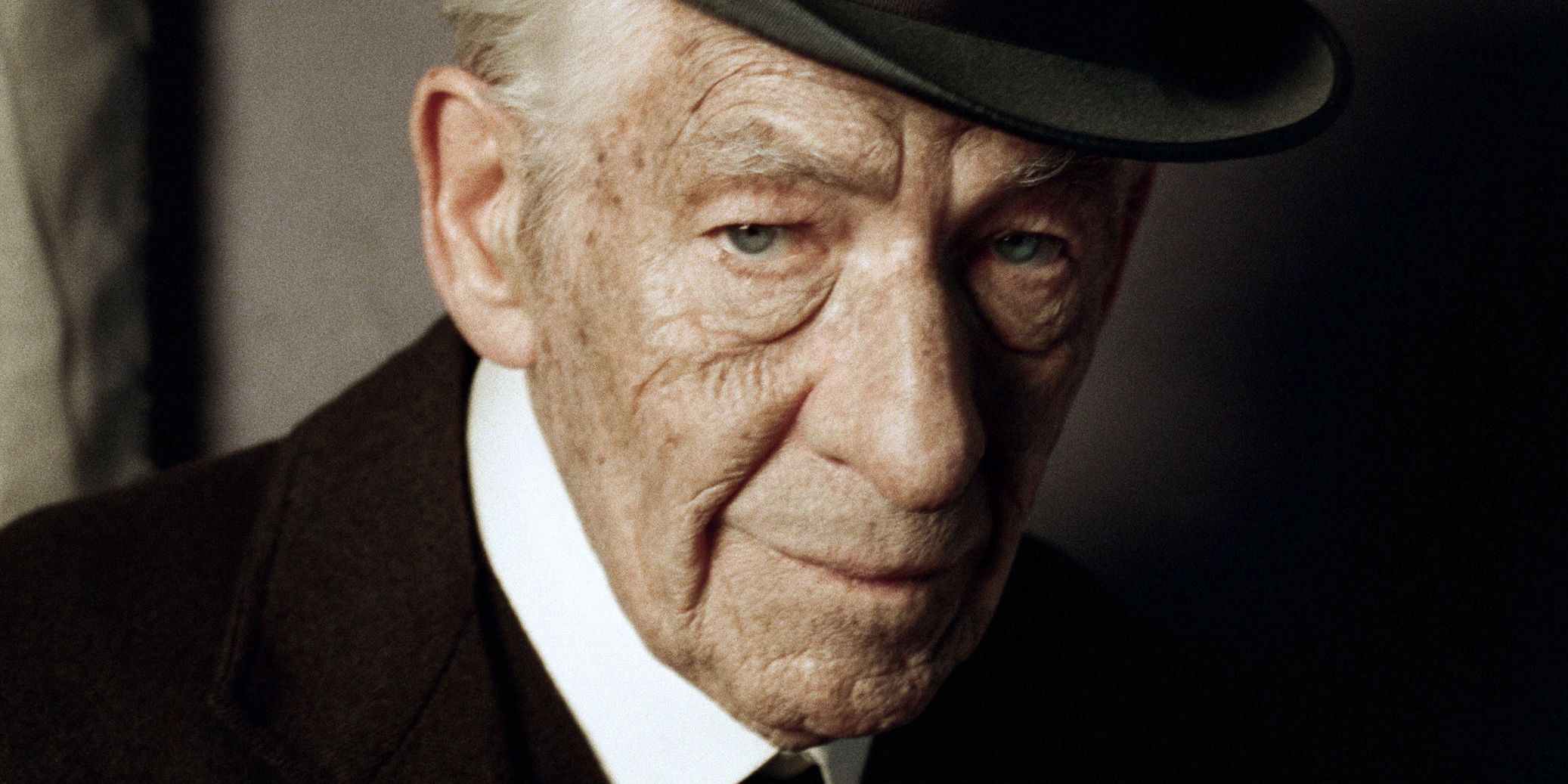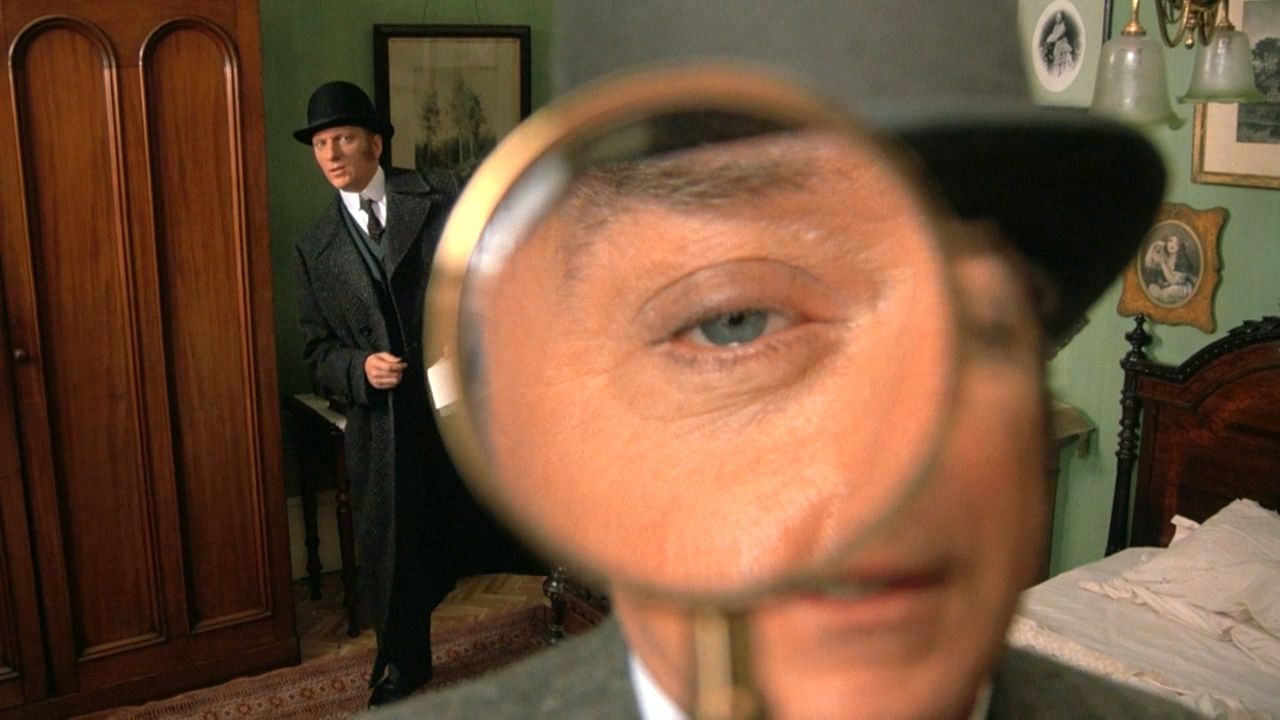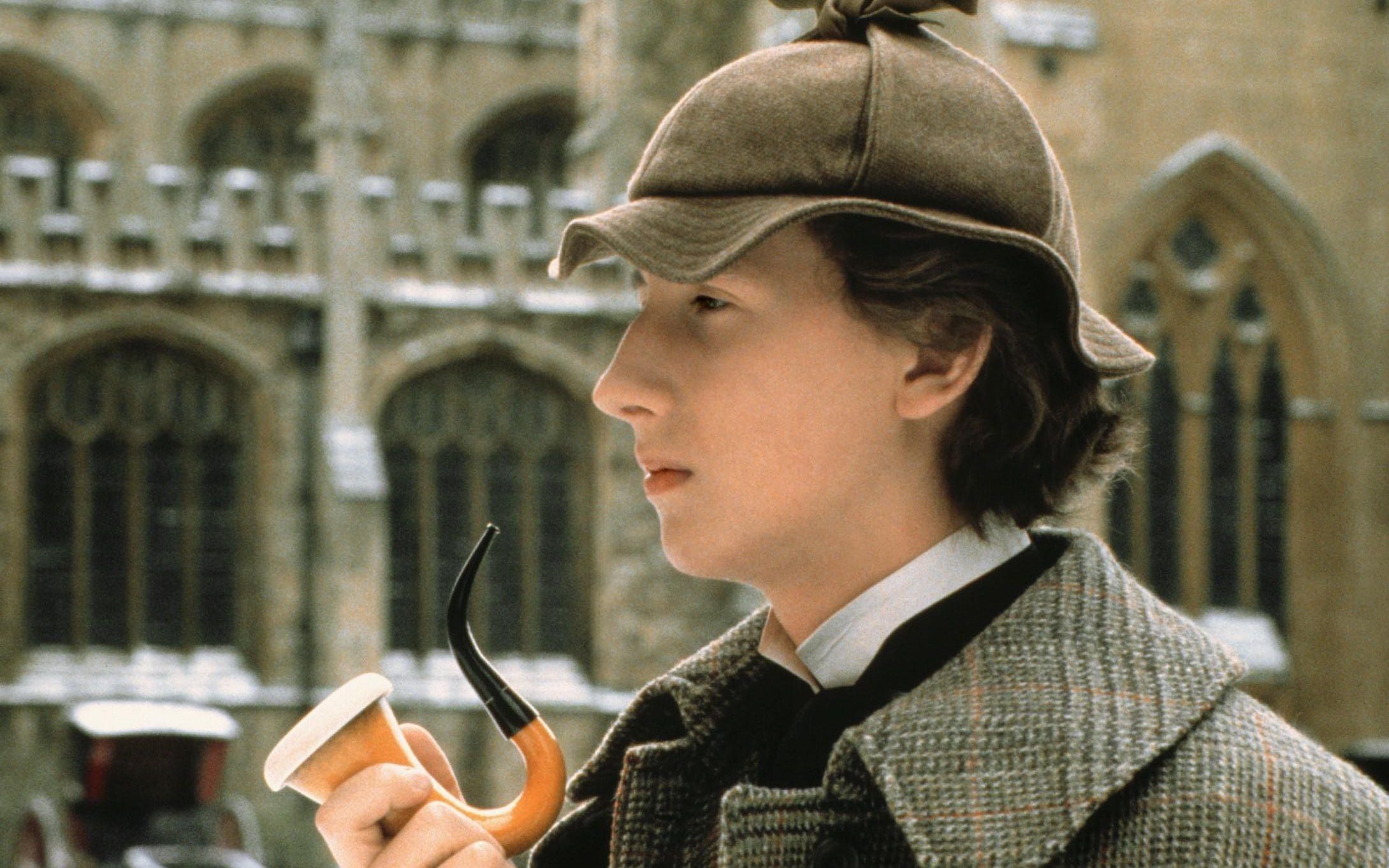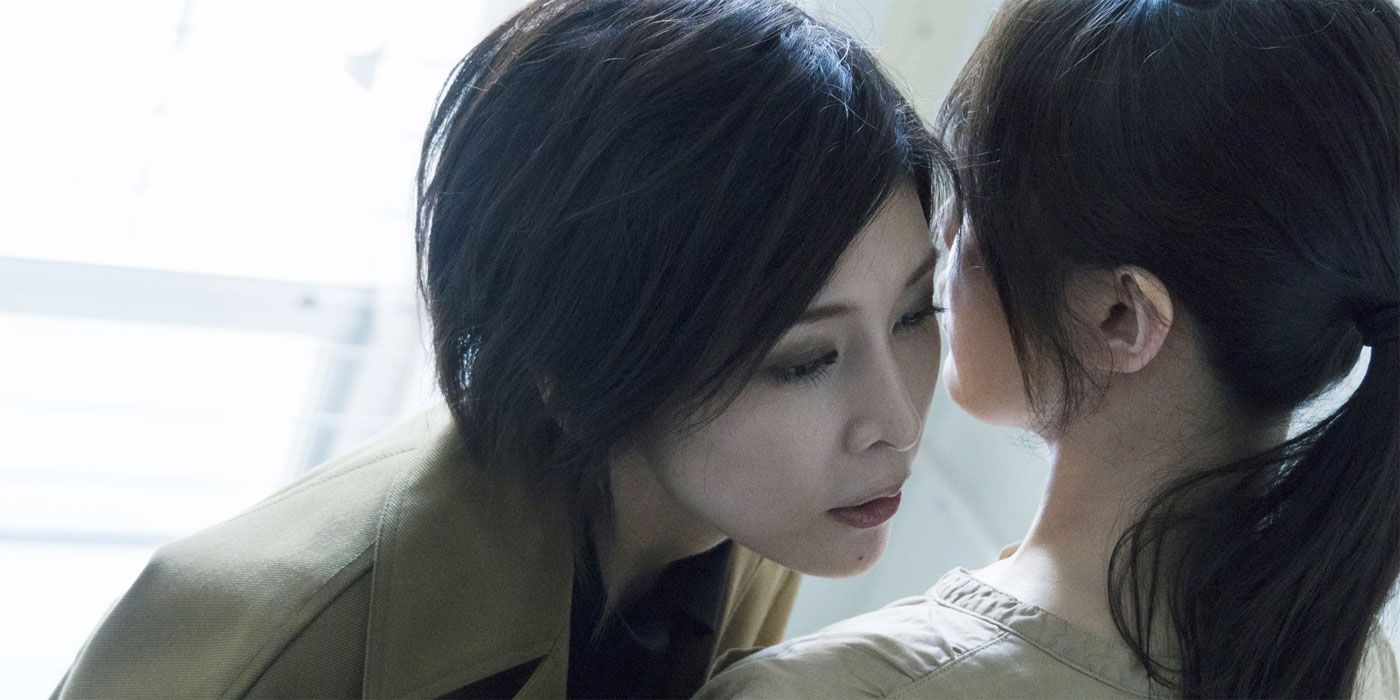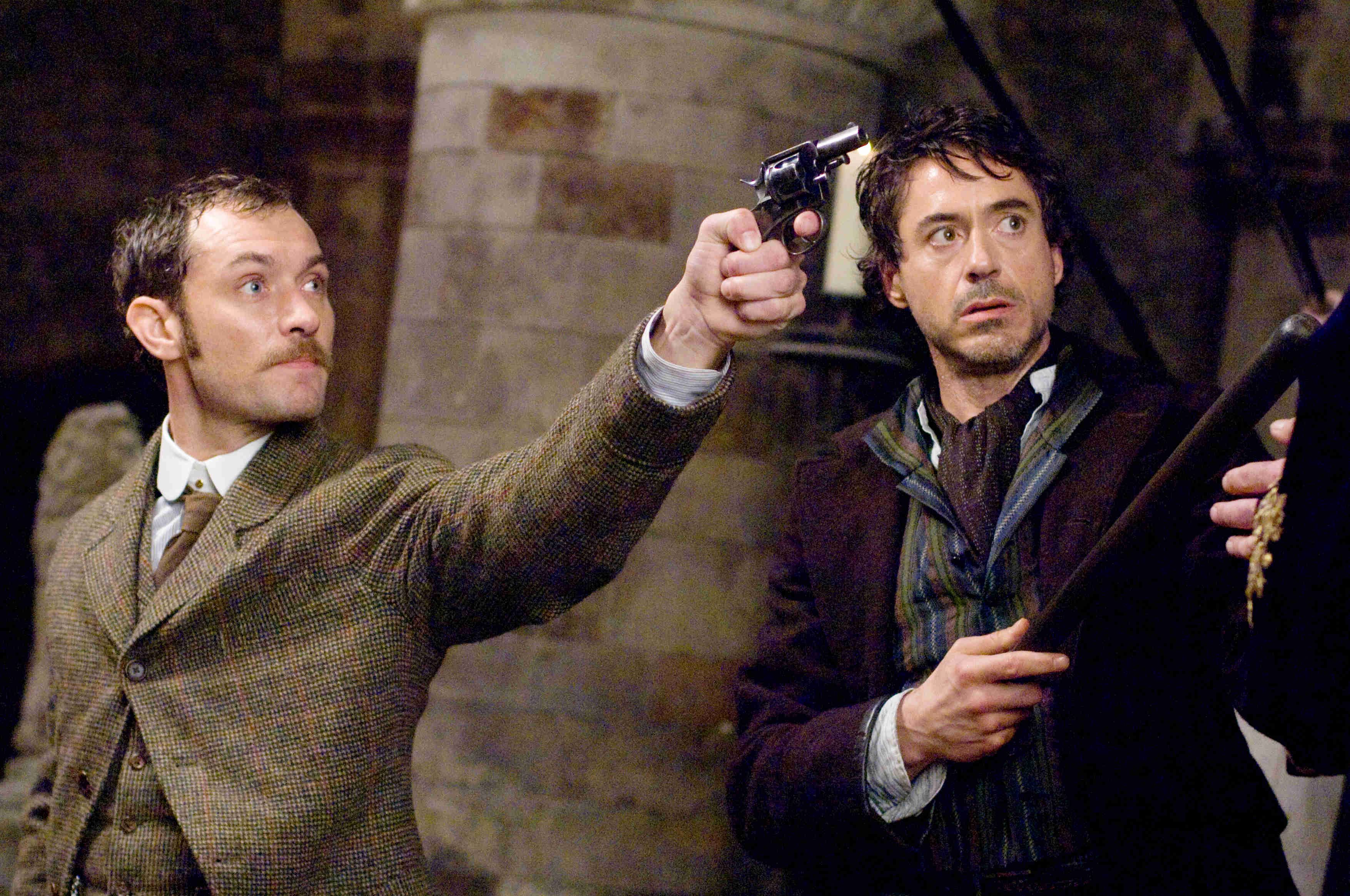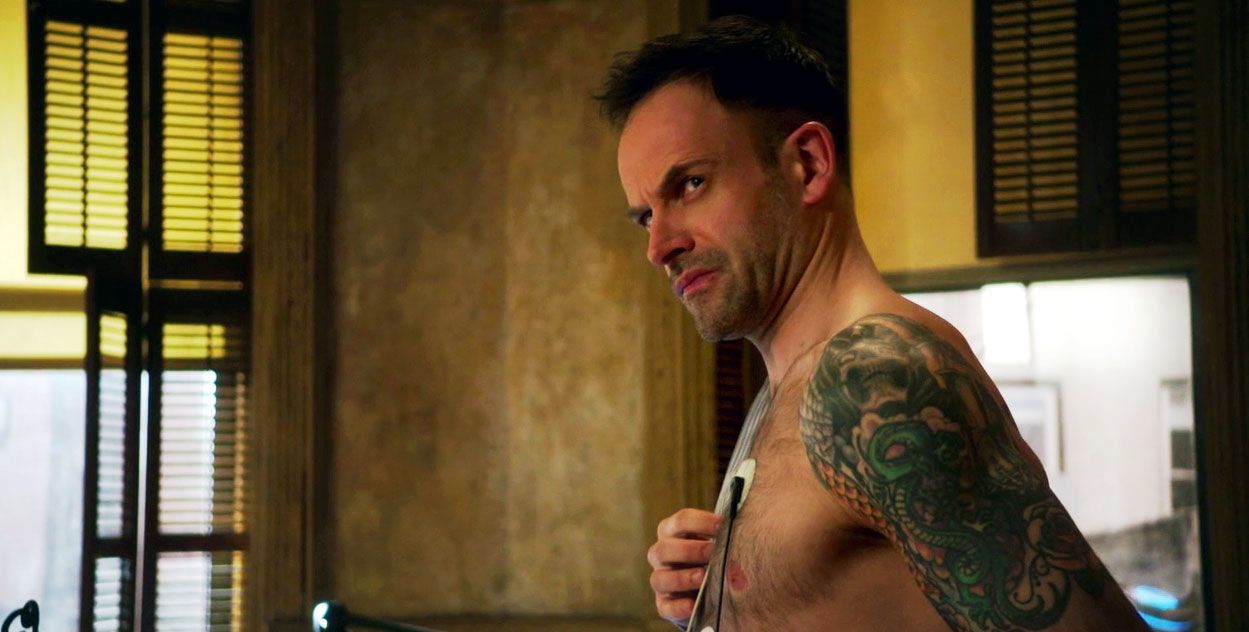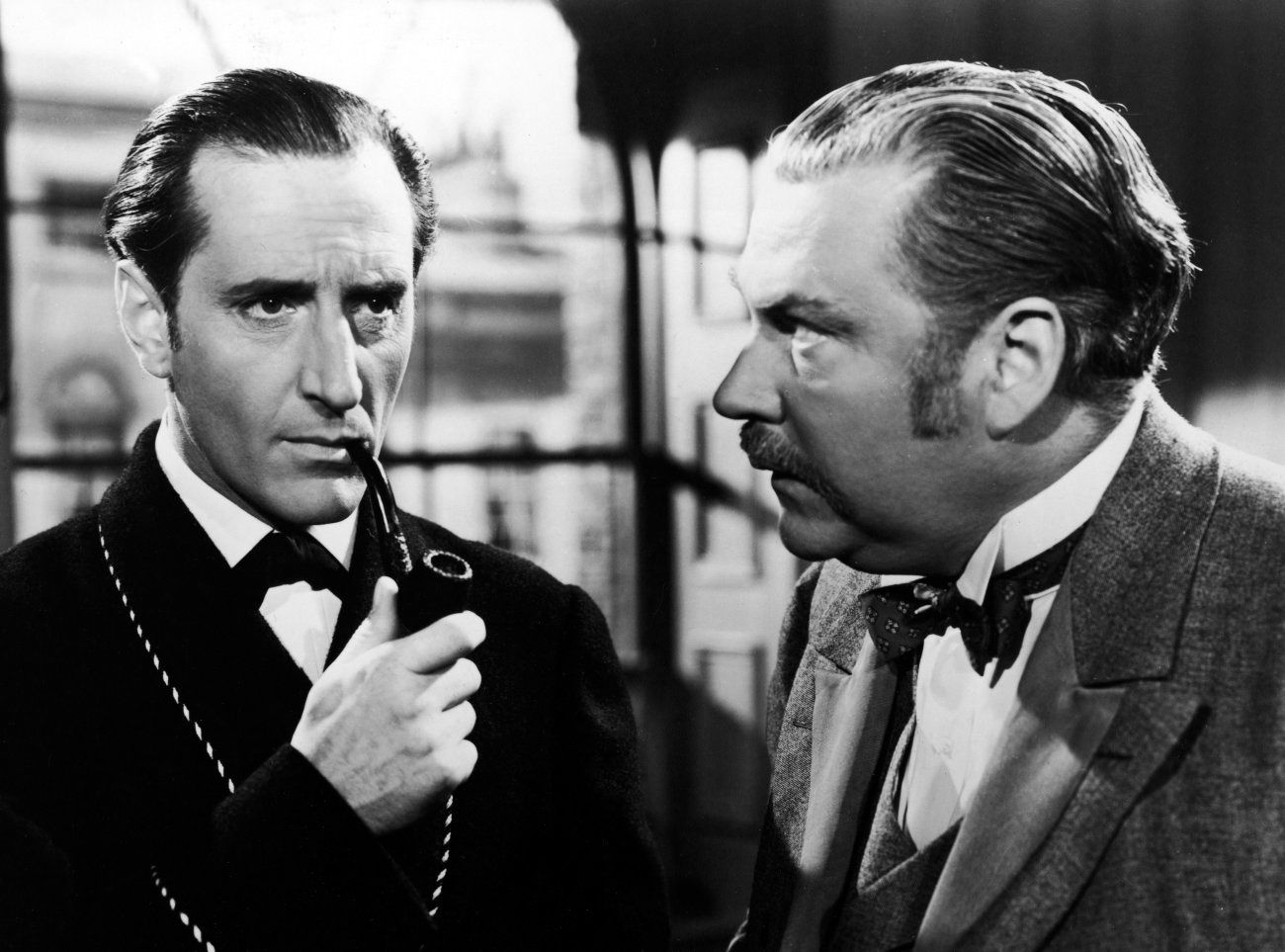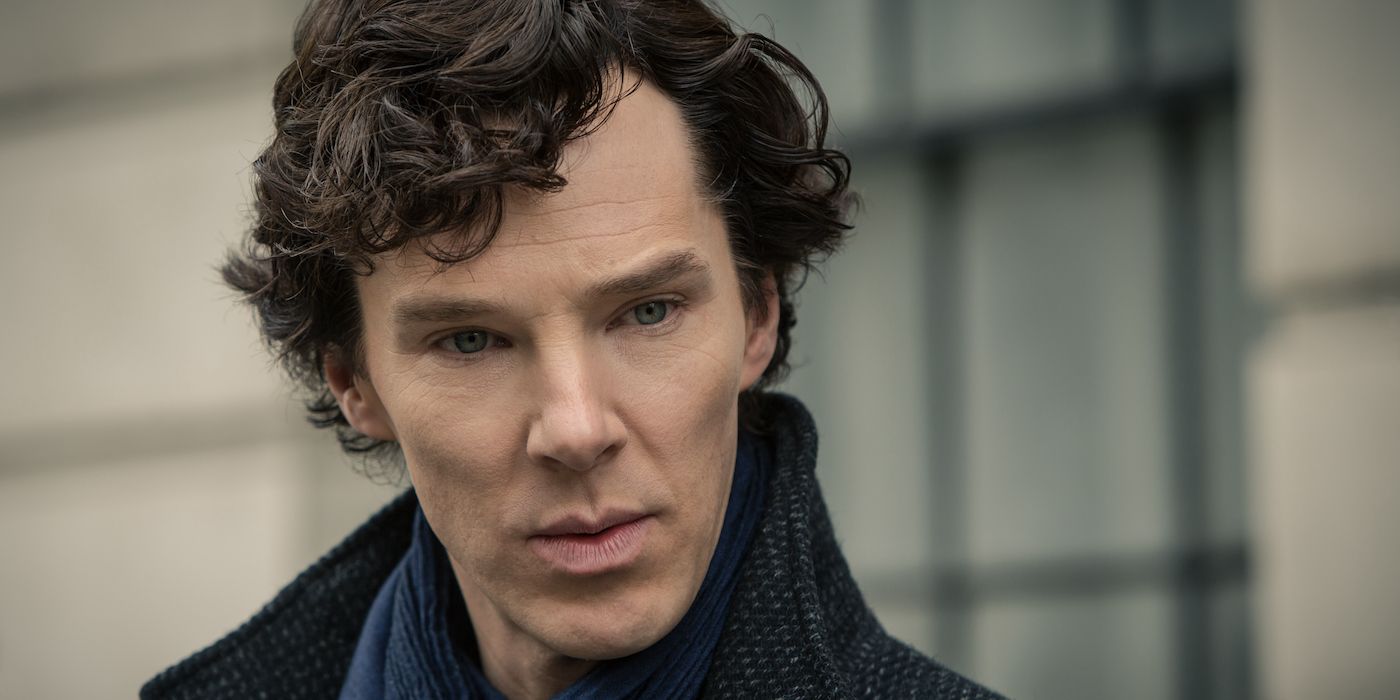At this point in our history, it's rarely a surprise to learn that some new take on Sherlock Holmes has arrived, simply because there have been so many. In fact, according to Guinness, Sir Arthur Conan Doyle's most famous creation is the most portrayed literary human character in film & TV — there have been 254 on-screen appearances as of 2012, with over 75 different actors offering up their own interpretations since the earliest days of silent film.
The most recent iteration is the mysterious drug-addled figure played by Henry Lloyd-Hughes in the new Netflix series The Irregulars, and while we wait to give his take a little time to age, the show's debut felt like a good occasion to look back at Sherlock as an ever-present figure in our stories, and how he has been portrayed for more than a century. Hence, this list.
For the purposes of my own personal sanity, I kept this list below to live-action (even though I desperately wanted to write about The Great Mouse Detective and how great Basil of Baker Street is and that it's cool that Disney was able to use archival audio of Basil Rathbone — okay, I guess I managed to slip all that in just now). Also, to be clear, this is limited to characters explicitly known as Sherlock — apologies to all the House, M.D. fans in the crowd, as well as anyone hoping for the inclusion of Brent Spiner as Data as Sherlock Holmes on Star Trek: The Next Generation.
Also, I did do research into portrayals of Sherlock Holmes by actors of color, but there were unfortunately very few options to consider; here's an in-depth look at the history of Black actors as Sherlock, but they're mostly limited to the stage. In fact, the show 30 Rock might contain the most famous example of a Black actor in the role on screen, and that's only thanks to the ever-present poster for Sherlock Homie, seen hanging in the dressing room of Tracy Jordan (Tracy Morgan).
The fascinating thing about considering Sherlock Holmes across multiple adaptations is that what one might consider being his defining qualities are subject to extreme interpretation: The history of the character on-screen includes a wide range of variations on his (or her!) age, race, geographic location, and placement in time. Some versions are eager to explore the question of Sherlock's sexuality (or lack thereof); some versions seek to examine the use and abuse of drugs. There are even multiple meta interpretations fascinated by Holmes' perception of his own mythology — and at least one which plays with the idea that said mythology is pure farce. But then, what is the truth when it comes to legacy? It's a question that might stump any of the Holmeses below.
17. Will Ferrell (Holmes and Watson, 2018)
There were over 150 titles in my original brainstorming for this project — many of them featuring repeat performers like Georges Tréville, Arthur Wontner, and Matt Frewer — so I could have made this list a lot longer. But in trimming down to the essentials, I also felt like the lowest entry on this list should represent the character at his high-profile worst, and thus including Will Ferrell's bumbling and often offensive take on the legend felt like the right choice. The blame here really lies with writer/director Etan Cohen, of course, but Ferrell still showed up to do Sherlock injustice, and that's all I really want to say on the matter... except, that is, to note that Hector Bateman-Harden was actually quite good as the young Sherlock in the film's prologue. The rest of the movie was not his fault.
16. Boris Karloff (The Elgin Hour – "Sting of Death", 1955)
Boris Karloff wasn't just the actor behind Hollywood's most famous portrayal of Frankenstein's monster — he also, late in his career, got the opportunity to play the most famous of detectives, in this installment of 1950s anthology series The Elgin Hour. For the time period and TV budget available, it's not a bad mystery tale, but honestly, this one ranks so low for a number of reasons, most notable yet shallow of which is Karloff's mustache — perhaps Sherlock's tribute to his absent bestie Watson? No matter the reason, it's definitely not what we're used to seeing on Sherlock.
15. Roger Moore (Sherlock Holmes in New York, 1976)
It was only in researching this list that I learned that Roger Moore had once played Sherlock Holmes in an NBC made-for-TV movie, and I watched it on YouTube largely for the novelty of seeing James Bond in the deerstalker. While it's a pretty nuanced depiction, something feels a little off about Moore's take here, especially given the way it, unfortunately, deemphasizes the whole mystery-solving aspect of his raison d'etre. But it's still interesting to watch, if only to see how Moore does his best to make the character feel distinct from his other, more famous personas.
14. James D'Arcy (Sherlock: A Case of Evil, 2002)
"The horny Sherlock" is how my notes refer to the Cloud Atlas star's take, and while that's no fault of James D'Arcy's necessarily, it is a choice that feels wildly out of line with previous as well as future incarnations. Still, D'Arcy still finds compelling moments to mine even while literally swashbuckling his way through the film's climax, and as a fan of his across multiple projects, including Secret Diary of a Call Girl, Agent Carter, and Broadchurch, I feel like he could do more, given the opportunity.
13. Henry Cavill (Enola Holmes, 2020)
Despite a number of high profile gigs, Henry Cavill remains a hard actor to get a read on, which is perhaps why the reserved energy he brings to this Netflix adaptation of Nancy Springer's book works so well — Enola Holmes is not Sherlock's adventure, after all, but his little sister's (Millie Bobbie Brown), and so he best serves the story by playing a supporting part. That being said, Cavill never really seems to find his own point-of-view here, almost feeling cipher-ish at times. Fingers crossed for a sequel that would not only let him stretch his performance a little more, but also continue the delightful potential for a franchise set up by the first film.
12. Rupert Everett (Sherlock Holmes and the Case of the Silk Stocking, 2004)
Rupert Everett's take on Sherlock invokes a coolness that works extremely well in this context, and it's unfortunate that this is the only instance to date of him taking on the role. The actual mystery being solved in this BBC-produced film, involving foot fetishes and Michael Fassbender as a suspect, isn't all that gripping, but there's good character work in establishing Holmes's addictions, as well as his frustration with the world not being interesting enough to keep up with his brain.
11. Ian McKellen (Mr. Holmes, 2015)
Collider's own Gregory Lawrence recently posited that really, Bill Condon and Ian McKellen's second (of four) collaboration is best seen as a Batman Beyond adaptation. It's an argument that definitely explains why, as good as McKellen's performance is, it never really feels quintessentially Holmes-ian. That being said, a massive part of the premise is built around deconstructing the myths surrounding the character, who is so much more than a funny hat and a pipe, and there's no denying that this quiet exploration of Holmes' later years gets at his humanity in a way few other adaptations have achieved.
10. Jeremy Irons (Saturday Night Live – "Sherlock Holmes' Birthday Party", 1991)
[EMBED_VIMEO]https://vimeo.com/199257178
[/EMBED_VIMEO]
There's a lot of information in the above that you might need a moment to unpack. Jeremy Irons once hosted Saturday Night Live? They did a Sherlock Holmes sketch? That's the only time Jeremy Irons has ever played Sherlock Holmes? Yes, yes, and to the best of my knowledge, yes. But while it's an obscure appearance it's a shockingly good one, as Irons plays the sketch completely straight, which ends up falling totally in line with its low-key premise (it's impossible to throw Sherlock Holmes a surprise birthday party, because he's too good a detective). While the sketch itself is less than six minutes long, that's more than enough time to make it clear that should Irons ever have the chance to play the part again, it'd be a treat to behold.
9. Michael Caine (Without a Clue, 1988)
Probably the least-faithful spin on Sherlock on this list, but that's essential to the twist of Thom Eberhardt's comedy, which quickly reveals that the great detective is, in reality, an idiot actor being propped up by the real genius in the partnership, Dr. Watson (Ben Kingsley). While it's unfaithful, though, it's also one of the most original, and maybe the most flat-out fun. That's largely thanks to Michael Caine's gung-ho approach to capturing both the concept of Holmes as the legend and Holmes as the pretender — a reminder to never trust in one's idols, or at the very least never try to learn too much about them.
8. Nicholas Rowe (Young Sherlock Holmes, 1985)
It takes something truly special to make a character come to life with just one look, and whenever I think of Young Sherlock Holmes, I immediately think of Nicholas Rowe's calm blank visage, laced with the casual arrogance that comes with believing you're the smartest man in any room. Directed by Barry Levinson and written by Chris Columbus, this film takes some weird turns (it's not the only Sherlock Holmes story to delve into questions of mysticism, which always feels antithetical to the nature of the character — yes, even given Conan Doyle's own interest in the supernatural). But Rowe's ability to find the essence of the man in the form of a spirited adolescent has aged far better from the groundbreaking-at-the-time CGI effects.
7. Nicol Williamson (The Seven-Per-Cent Solution, 1976)
Before making Time After Time, which asked the question "what if Jack the Ripper stole H.G. Wells' time machine?", Nicholas Meyer wrote the novel and screenplay which asked the question "what if the great detective got some therapy — and went to the world's most famous therapist for the job?" It's a very direct approach to getting at some deep character analysis, and Nicol Williamson ably manages the difficult task of portraying a Holmes who ultimately is able to experience some real self-reflection while undergoing psychoanalysis with Sigmund Freud (Alan Arkin). More importantly, The Seven-Per-Cent Solution is an early example of a Sherlock adaptation that put the spotlight on his addiction issues with a modern point-of-view, a key facet of his persona which future versions have mined in-depth for inspiration.
6. Yūko Takeuchi (Miss Sherlock, 2018)
The version of Sherlock presented in this HBO Asia series is, on the surface, extremely different from other portrayals, most notably this: Instead of playing the violin, this Sherlock plays the cello. Oh, and yes, she's also a Japanese woman named Sara "Sherlock" Shelly Futaba, who lives in modern-day Tokyo and has a fondness for high heels. But in so many other ways, Yūko Takeuchi is a perfect embodiment of the character, right down to the glee she can't help but express when confronted by a lethal puzzle. Beyond the initial gimmick of this adaptation, Miss Sherlock delivers a compelling twist on what's come before while also remaining faithful to the spirit of Conan Doyle's original works. (Also, Sherlock's new best friend is named Dr. Wato, which means she's called Wato-san, and that's just perfection.)
5. Robert Downey Jr. (Sherlock Holmes, 2009; Sherlock Holmes: A Game of Shadows, 2011)
The combined might of the iconic nature of the character and Robert Downey Jr.'s post-Iron Man star power made these films into blockbusters, but it's more than star power that makes Downey Jr.'s turn so sharp. The series plays with the idea of Sherlock as a more physical hero than previous incarnations (in case you doubt that this was released in 2009 and directed by Guy Richie, Sherlock does parkour at the very beginning of the film). But there's support for that idea within the actual text — in the very first Conan Doyle story, "A Study in Scarlet," Watson notes that his new roommate "is an expert singlestick player, boxer, and swordsman.” And more importantly, it sets this iteration well apart from the classic image of the perfectly pressed gentleman, leaning into the character's rougher aspects that honestly brings with it an air of authenticity. There's a world of difference between Downey Jr.'s Sherlock and the more classical interpretation, but his unkempt brashness feels truthful in a way that pairs nicely with the big and bold mysteries he takes on in these films.
4. Jonny Lee Miller (Elementary, 2012–2019)
There were two contemporary Sherlock TV shows running simultaneously for a good part of the 2010s, and Jonny Lee Miller doesn't get nearly enough credit for finding his own spin on the character while also surviving the incredible physical and mental demands that come with making a CBS procedural drama. (As of writing, there have been a total of 13 feature-length installments of Sherlock made — Elementary's seven-season run lasted 154 episodes.)
Beyond its longevity, Miller's version is notable for the twists its initial premise makes on the original tale, especially the way it centers the character's addiction issues, beginning with a Sherlock fresh out of rehab and a Dr. Watson who comes to live with him as a sober companion. (For the record, if I were to make the Watson equivalent of this list in the future, Lucy Liu would be a serious contender for the number one slot.) This is a more vulnerable Holmes than others, but one who proves easier to emphasize with, all without him losing that essential brilliant spark.
3. Basil Rathbone (The Adventures of Sherlock Holmes and more, 1939-1946)
For at least one generation, arguably more, Basil Rathbone was the definitive Sherlock Holmes, calm and inscrutable and always capable of solving the case. One of the more prolific actors to play the role, starring in 14 films over a seven-year period (first for 20th Century Fox, then for Universal Pictures), what stands out about his portrayal is that the character always seems to take a backseat to the mystery being solved — perhaps because Rathbone didn't seem to like him very much. "I came to the conclusion (as one may in living too closely and too long in seclusion with any one rather unique and difficult personality) that there was nothing lovable about Holmes," Rathbone is quoted as saying by the Guardian. While he fully acknowledges in that quote how his perspective might be affected by proximity, it still explains why Rathbone's solid and steady work lacks the spark of other portrayals. That being said, the man is iconic for a reason.
2. Jeremy Brett (Sherlock Holmes, 1984–1994)
There's a range of Sherlock types on this list, from the unconventional to the more traditional, and of the traditional options available Jeremy Brett is simply top of his class. As the star of 41 different mysteries produced by Granada Television, Brett delivers the intellectual swagger and wry wit found in the best interpretations. But what sets him apart from the others is the ever-present sense of humanity he brings to the character. Any iconic character with over 100 years of legacy is painfully easy to turn into caricature, but with his time on screen, Brett found a way to keep alive the idea of Holmes as a man not just with a brilliant brain, but a human heart. And he did so while acting in some of the most faithful Conan Doyle adaptations to date, ensuring his place in history as one of the very best and most beloved Sherlocks to date.
1. Benedict Cumberbatch (Sherlock, 2010–2017)
The fun thing about writing a list like this is knowing, from my own experience as a reader, that you've been counting down this whole time to see what won the top slot. (Maybe you even skipped directly here from the top of the article? Who's to say.) And thus, with each progressing entry, you were keenly aware that I had yet to mention the pop culture force that is the BBC's most recent rendition of our crime-solving hero, created by Mark Gatiss and Steven Moffat — but also, perhaps you had already guessed that he would be saved for last.
Benedict Cumberbatch's portrayal stands out as the best in part because of how well it captures that Holmes-ian essence without any of the period trappings we'd previously associated with the character. (In fact, when Sherlock shed its contemporary skin for the New Year's Day 2016 special "The Abominable Bride," the shift in time zones didn't seem to matter one bit.)
It's early yet to say whether Sherlock will have the lasting resonance of other, decades-older entries on this list. Hell, it's not even necessarily over yet: Both Cumberbatch and Martin Freeman are open to returning for more installments, Marvel permitting.
But it's a testament to both the show's writing and Cumberbatch's understanding of the character that even with a mobile phone glued to his hand, this version feels so authentic to the spirit of Conan Doyle's original creation — a renowned figure of legend who also does have some true humanity, buried deep beneath the facade. It's this fascinating study of the outward and inward that has kept Sherlock alive in the world's imagination for all these years, in all these different incarnations. And it will be that same quality that keeps Sherlock alive, for centuries more to come.

